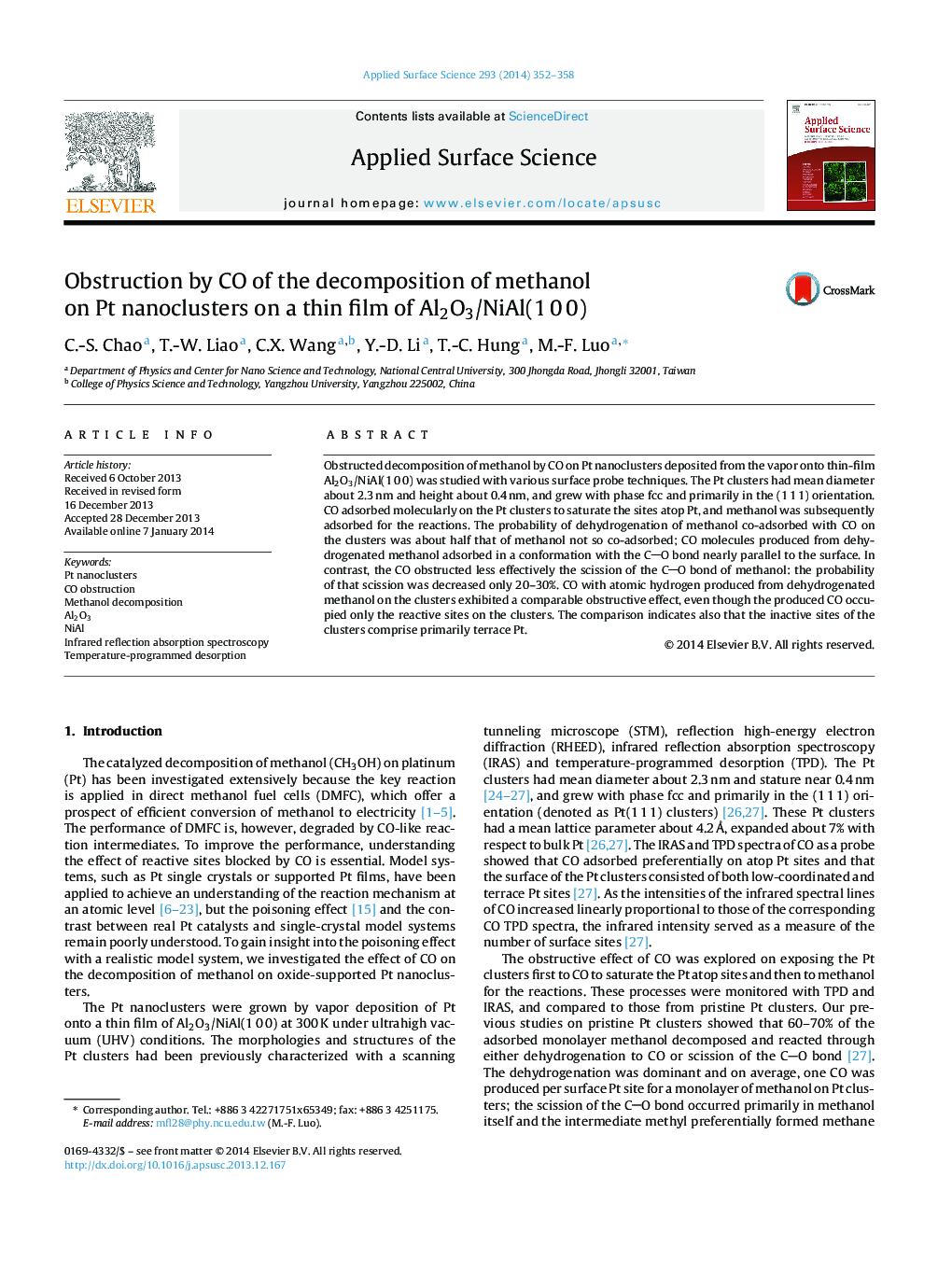| Article ID | Journal | Published Year | Pages | File Type |
|---|---|---|---|---|
| 5351543 | Applied Surface Science | 2014 | 7 Pages |
Abstract
Obstructed decomposition of methanol by CO on Pt nanoclusters deposited from the vapor onto thin-film Al2O3/NiAl(1Â 0Â 0) was studied with various surface probe techniques. The Pt clusters had mean diameter about 2.3Â nm and height about 0.4Â nm, and grew with phase fcc and primarily in the (1Â 1Â 1) orientation. CO adsorbed molecularly on the Pt clusters to saturate the sites atop Pt, and methanol was subsequently adsorbed for the reactions. The probability of dehydrogenation of methanol co-adsorbed with CO on the clusters was about half that of methanol not so co-adsorbed; CO molecules produced from dehydrogenated methanol adsorbed in a conformation with the CO bond nearly parallel to the surface. In contrast, the CO obstructed less effectively the scission of the CO bond of methanol: the probability of that scission was decreased only 20-30%. CO with atomic hydrogen produced from dehydrogenated methanol on the clusters exhibited a comparable obstructive effect, even though the produced CO occupied only the reactive sites on the clusters. The comparison indicates also that the inactive sites of the clusters comprise primarily terrace Pt.
Keywords
Related Topics
Physical Sciences and Engineering
Chemistry
Physical and Theoretical Chemistry
Authors
C.-S. Chao, T.-W. Liao, C.X. Wang, Y.-D. Li, T.-C. Hung, M.-F. Luo,
